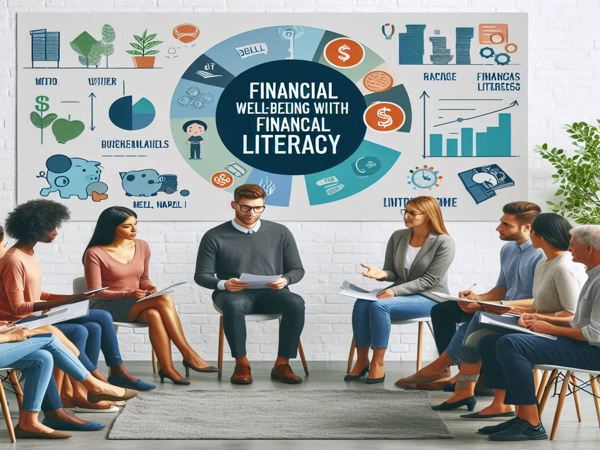Financial literacy is a crucial skill that can have a significant impact on an individual's financial well-being. It is the ability to understand and manage personal finances effectively, making informed decisions about money and achieving financial stability. In this blog, we will explore the impact of financial literacy on financial well-being and provide tips on how to improve financial literacy.
The Importance of Financial Literacy
Financial literacy is essential for achieving financial well-being because it allows individuals to make informed decisions about their money. Without financial literacy, individuals may struggle to manage their finances effectively, leading to financial stress, debt, and financial insecurity.
The Impact of Financial Literacy on Financial Well-being
Financial literacy has a significant impact on financial well-being, including:
- Improved Financial Management: Financial literacy enables individuals to manage their finances effectively, making it easier to budget, save, and invest.
- Reduced Financial Stress: Financial literacy can reduce financial stress by providing individuals with the knowledge and skills to manage their finances effectively, reducing anxiety and worry about money.
- Increased Financial Confidence: Financial literacy can increase financial confidence, allowing individuals to feel more comfortable making financial decisions and taking control of their financial lives.
- Better Financial Planning: Financial literacy enables individuals to plan for the future, making it easier to achieve long-term financial goals, such as retirement or buying a home.
- Improved Financial Security: Financial literacy can improve financial security by providing individuals with the knowledge and skills to manage financial risks, such as debt and market volatility.
The Benefits of Financial Literacy
Financial literacy has numerous benefits, including:
- Increased Financial Independence: Financial literacy can increase financial independence, allowing individuals to make choices about their financial lives and achieve financial freedom.
- Improved Financial Health: Financial literacy can improve financial health by providing individuals with the knowledge and skills to manage their finances effectively, reducing financial stress and improving overall well-being.
- Increased Financial Confidence: Financial literacy can increase financial confidence, allowing individuals to feel more comfortable making financial decisions and taking control of their financial lives.
- Better Financial Planning: Financial literacy can improve financial planning, enabling individuals to plan for the future and achieve long-term financial goals.
- Improved Financial Security: Financial literacy can improve financial security by providing individuals with the knowledge and skills to manage financial risks, such as debt and market volatility.
How to Improve Financial Literacy
Improving financial literacy is essential for achieving financial well-being. Here are some tips on how to improve financial literacy:
- Take a Financial Literacy Course: Take a financial literacy course or workshop to learn the basics of personal finance and improve financial literacy.
- Read Financial Literacy Books: Read financial literacy books or articles to learn more about personal finance and improve financial literacy.
- Use Financial Literacy Apps: Use financial literacy apps or online tools to track spending, create a budget, and improve financial literacy.
- Consult with a Financial Advisor: Consult with a financial advisor or planner to get personalized guidance and support on improving financial literacy.
- Practice Financial Literacy: Practice financial literacy by applying the skills and knowledge learned to real-life financial situations.
Conclusion
Financial literacy is a crucial skill that can have a significant impact on financial well-being. It is essential for achieving financial stability, reducing financial stress, and improving financial confidence. By improving financial literacy, individuals can make informed decisions about their money, achieve financial independence, and improve overall well-being.
Additional Resources
- Financial Literacy Courses: Explore online courses or workshops that focus on financial literacy and personal finance.
- Financial Literacy Books: Read financial literacy books or articles to learn more about personal finance and improve financial literacy.
- Financial Literacy Apps: Use financial literacy apps or online tools to track spending, create a budget, and improve financial literacy.
- Financial Advisors: Consult with a financial advisor or planner to get personalized guidance and support on improving financial literacy.
Final Thoughts
Financial literacy is a powerful tool that can improve financial well-being by providing individuals with the knowledge and skills to manage their finances effectively. By improving financial literacy, individuals can achieve financial stability, reduce financial stress, and improve overall well-being. Remember to take control of your financial life by improving financial literacy and achieving financial well-being.

.jpg)







